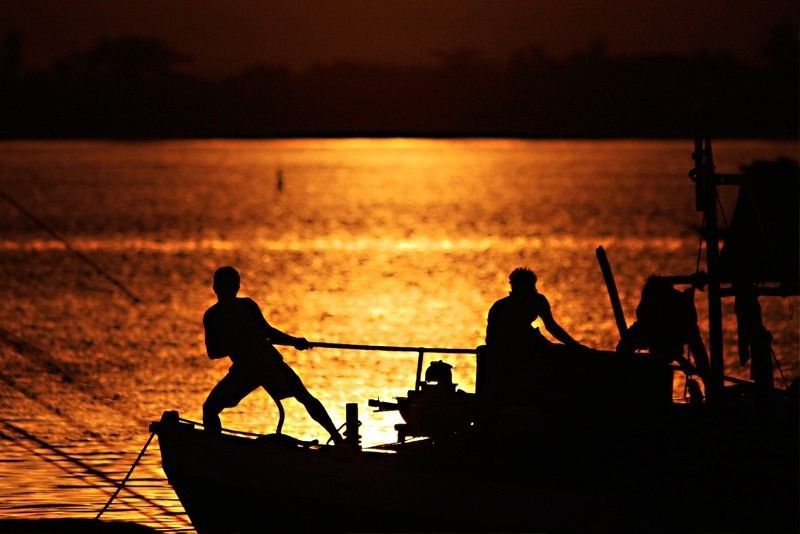
Photo from PhilStar
DURING the 2019 State of the Nation Address (SONA) of President Rodrigo Duterte, he mentioned the concept of traditional fishing rights (TFRs). What is it? Is respecting the TFRs of foreigners in waters within the reaches of our sovereignty and sovereign rights compatible with the Constitution? And would this non-State-centric concept be a helpful tool in forging a cooperative relationship among the South China Sea (SCS) disputants?
TFRs are part of customary international law, invoked by international arbitral and adjudication decisions prior to and after the adoption of the UN Convention on the Law of the Sea (Unclos).
In international adjudications, the International Court of Justice (ICJ) decisions in two 1974 fisheries jurisdiction cases (United Kingdom of Great Britain and Northern Ireland v. Iceland and Federal Republic of Germany v. Iceland) are exemplary. In both cases, the ICJ decided that Iceland’s “preferential fishing rights” as a coastal state need to be “reconciled with the traditional fishing rights” of the fishermen of the UK and the Federal Republic of Germany and other nations which have habitually operated in the waters near Iceland.
In international arbitrations, two stand out. First, the 1988 arbitral decision on Eritrea v. Yemen which emphasized that “sovereignty is not inimical to, but rather entails, the perpetuation of the traditional fishing regime in the region.” And second, the 2016 arbitral decision on the Philippines v. China, which declared Scarborough Shoal as “traditional fishing ground” of Chinese and Filipino — even of Vietnamese fishermen.
The Philippines fought for the rights of Filipino fishermen to operate in Scarborough Shoal not on the basis of sovereign rights (even though Scarborough Shoal is within our exclusive economic zone) but on the basis of their TFRs. A good legal tactic as China was at the time, and currently still, was effectively occupying Scarborough Shoal. Thus, if China has sovereignty over the shoal, Filipino fishermen can still operate there on the basis of TFRs, even within the territorial sea of the shoal (the shoal is considered “legally” a “rock,” hence can only generate a 12 nautical mile territorial sea).
What’s the difference between “sovereign right” and TFRs? Sovereign rights are held by the State. Meanwhile, TFRs are “vested rights” held by individuals. And “the vested rights of foreign nationals,” the SCS arbitration decision emphasized in Paragraph 808, “fall squarely within the ‘other rules of international law’ applicable in the territorial sea.”
Paragraph 799 of the SCS arbitral decision further explains the status of “vested rights” in international law:
“Where private rights are concerned, international law has long recognized that developments with respect to international boundaries and conceptions of sovereignty should, as much as possible, refrain from modifying individual rights.”
This means that international law respects vested rights even in the face of claims of sovereignty and boundary limitations.
Meanwhile, paragraph 794 of the SCS decision stressed that “traditional fishing rights in international law…warrant particular protection” because of “traditional livelihoods and cultural patterns are fragile in the face of development and modern ideas of interstate relations.”
Respecting individuals’ vested rights, such as TFRs, is part of the “generally accepted principles of international law.” The decision of the Permanent Court of International Justice on Certain German Interests in Polish Upper Silesia emphasized this when it said: “…the principle of respect for vested rights…forms part of generally accepted international law.” And generally accepted international law is considered “as part of the law of the law of the land” byArticle II, Section 2 of the Philippine Constitution.
So, do Chinese fishermen have TFRs in the waters around the Spratly features? Most probably yes. It has not been noted that in paragraph 805 of the arbitral decision, both the claims of the Philippines and China were accepted as accurate. Their claim: their fishermen “have traditionally fished at the [Scarborough Shoal].” The arbitration tribunal accepted in good faith their declarations even if the tribunal “does not have before it extensive details of the fishing methods traditionally used by either Filipino or Chinese fishermen, or of the communities that have traditionally dispatched vessels to Scarborough Shoal” (paragraph 806).
Documented by both Chinese and non-Chinese sources, Chinese fishermen have been operating in the waters around and within the Spratly features traditionally. For example, when the French annexed the Spratlys in the 1930s, they saw Chinese fishermen there. If the arbitral decision recognized Chinese TFRs in the Scarborough Shoal by virtue of the statement of the Chinese government, it is highly likely that it would also recognize the TFRs of Chinese fishermen in the waters within and around Spratly features.
Using the concept of TFR has a strategic value. It doesn’t deal with sovereignty issues because TFRs are privately held rights and not rights of the State. Respecting vested rights doesn’t strengthen sovereignty claims as vested rights aren’t State rights but private rights. Private rights aren’t good basis for claiming sovereignty and sovereign rights. No principle in international law supports the idea that respecting vested rights of an individual redounds to strengthening the sovereign claim of the State of citizenship of that individual.
As the TFR discourse shelves the sovereignty issue, it will be easier for China and the Philippines to forge a fishing agreement based on the sustainable management of fishery resources in their dispute areas.
srsasot@gmail.com
Source and Original Article from: >>> The Manila Times

Comments